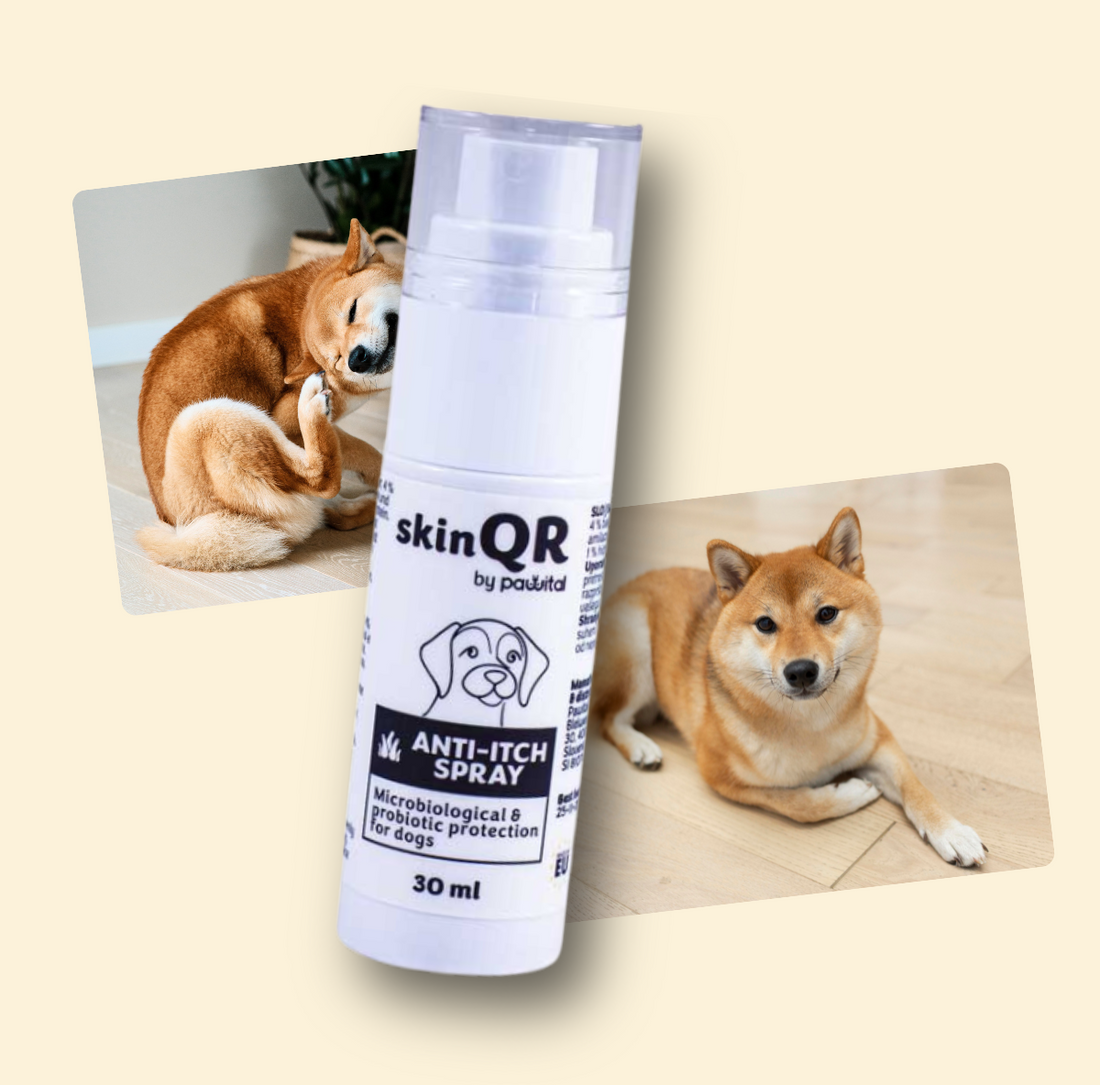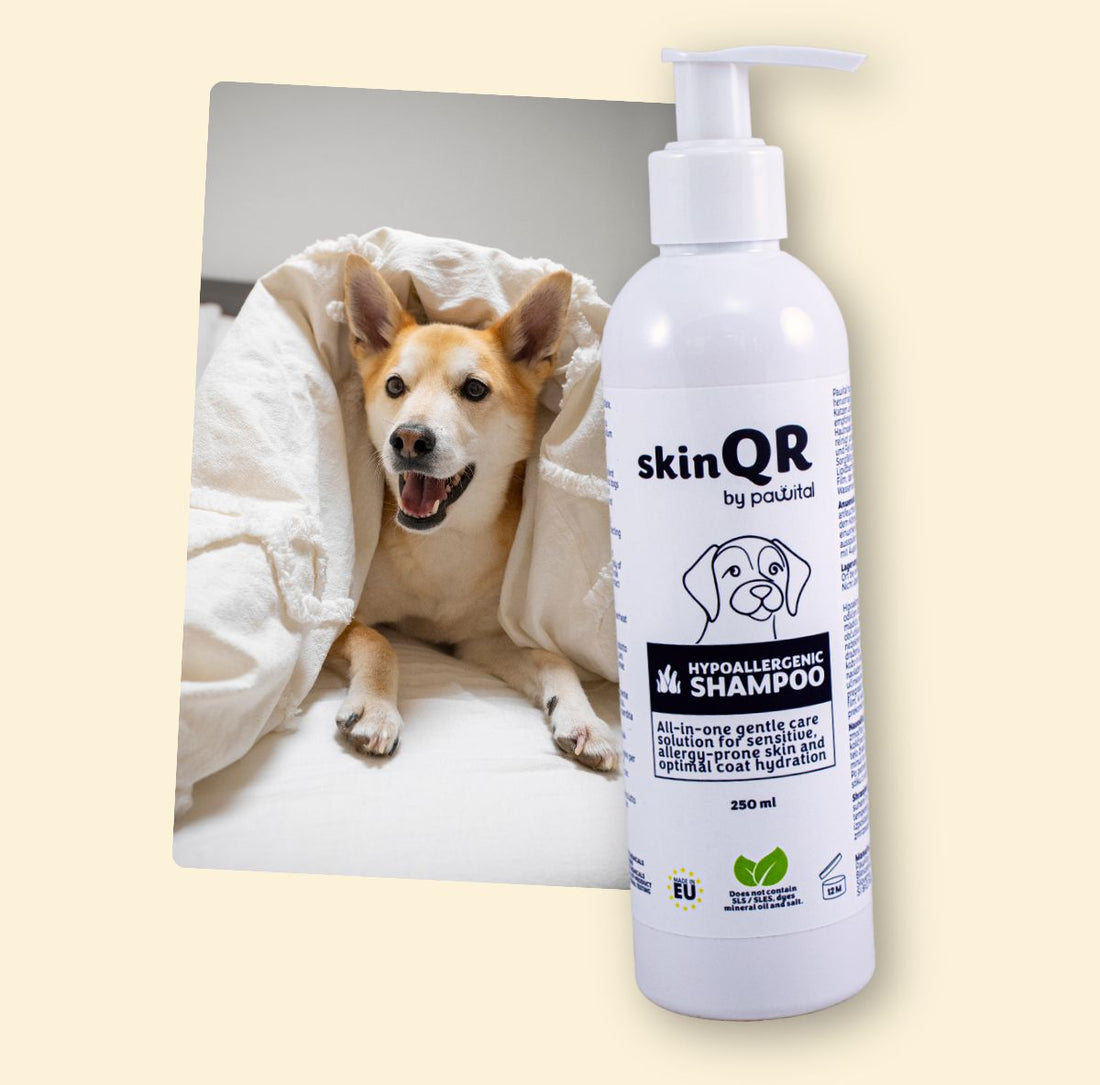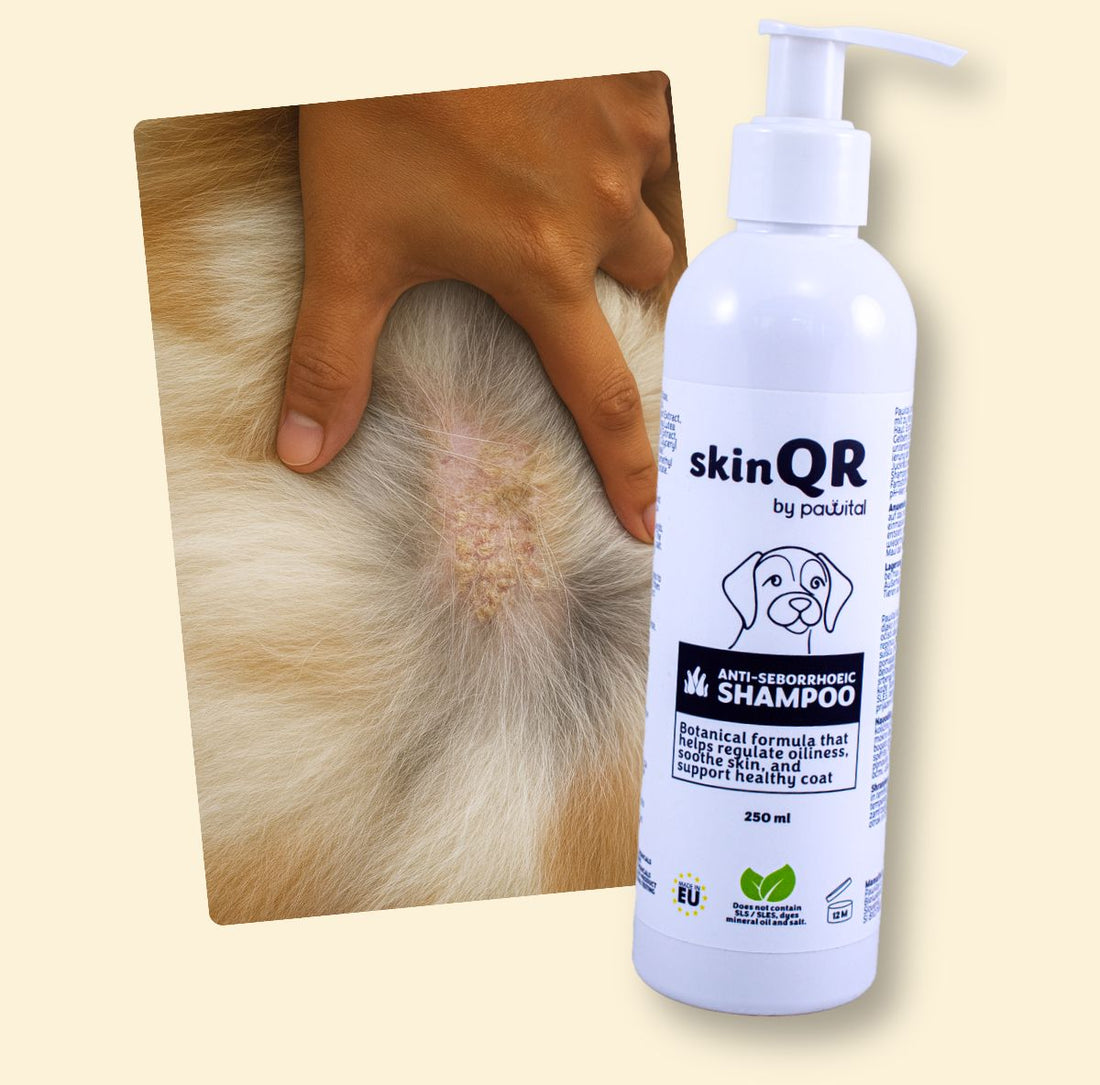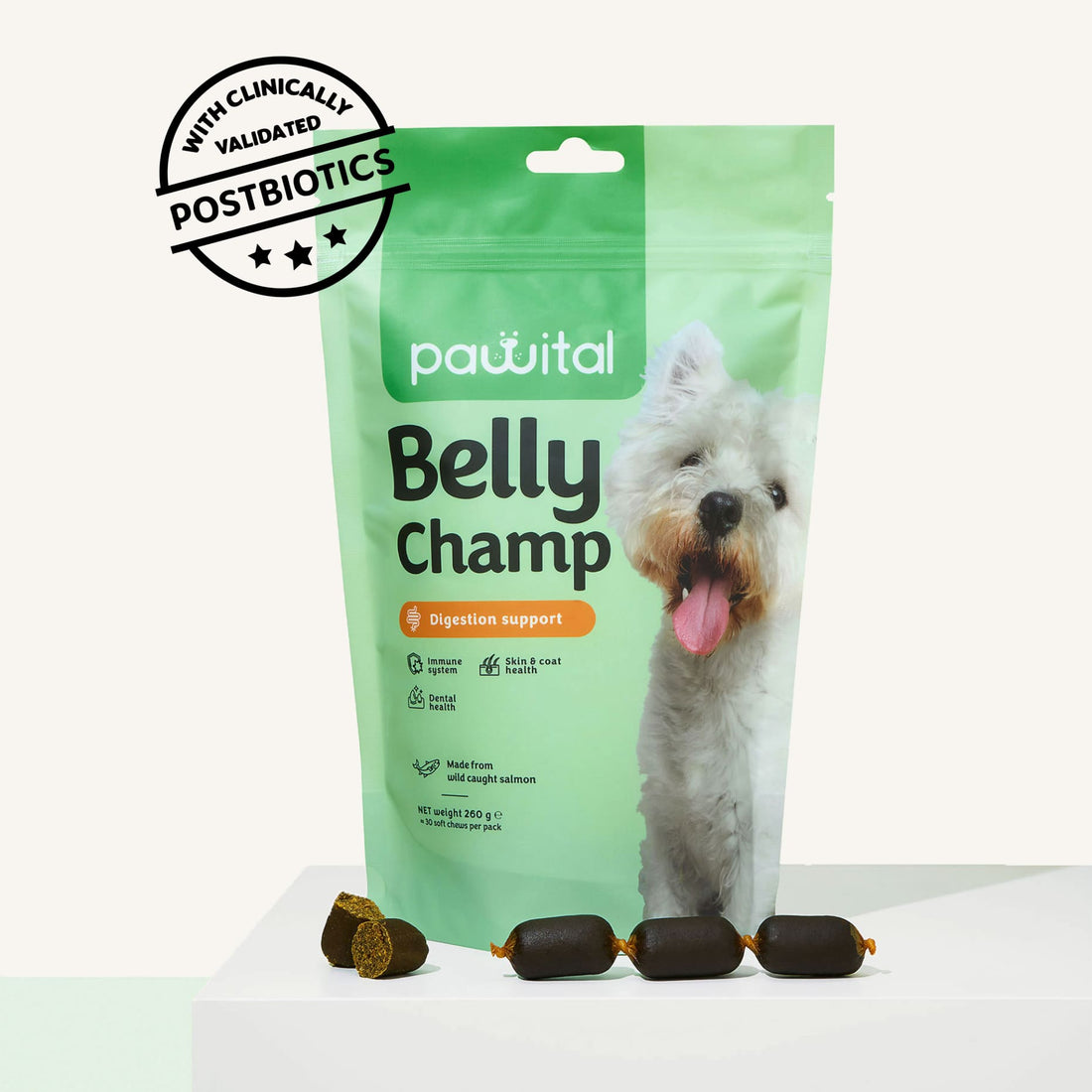The Gut-Behavior Connection in dogs
How Gut Health Influences Your Dog’s Mood and Reduces Anxiety
The health of your dog's gut extends far beyond digestion and nutrient absorption. Emerging research has revealed a fascinating connection between gut health and behavior, demonstrating that a balanced gut can significantly impact your dog's mood, anxiety levels, and overall behavior. Understanding this connection is key to promoting a happier and calmer life for your furry friend.

The Gut-Brain Axis
The gut-brain axis is a bidirectional communication network that links the gastrointestinal tract with the brain. This connection is facilitated by the vagus nerve, hormones, and immune system signals. The gut microbiome-the diverse community of microorganisms residing in the digestive tract-plays a crucial role in this communication.
Studies have shown that the gut microbiome can influence the production of neurotransmitters such as serotonin, dopamine, and gamma-aminobutyric acid (GABA), which are vital for regulating mood and behavior. In fact, about 90% of serotonin, the "feel-good" neurotransmitter, is produced in the gut.

Research on Gut Health and Behavior in Dogs
- Serotonin Production: A study published in J Med Food showed the correlation between microbiome and the brain, showing that gut microbiota can influence the central nervous system and behavior by modulating serotonin pathways.
- Anxiety and Stress: A study published in Heliyon showed that different behaviors in dogs might be linked to their unique gut microbiomes. This suggests that the gut and brain are connected. It also means that giving probiotics could help balance the gut bacteria and possibly improve behavior issues in dogs.
- Memory performance: An article published by Animals journal showed that gut bacteria can significantly affect behavior and brain development in dogs, as well the cognitive decline in older dogs.

Signs of Gut-Related Behavioral Issues in Dogs
If your dog's gut health is compromised, it may manifest as behavioral issues, including:
- Anxiety and Stress: Signs include excessive barking, whining, or destructive behavior when left alone.
- Aggression: Increased irritability and aggression towards people or other animals.
- Lethargy and Depression: A lack of interest in activities they usually enjoy, excessive sleeping, or withdrawal.

Strategies to Improve Your Dog's Gut Health and Behavior
- Balanced Diet: Feed your dog a high-quality diet rich in fiber, proteins, and essential fatty acids. Avoid foods with artificial additives and fillers, which can disrupt the gut microbiome.
- Probiotics and Prebiotics: Incorporate probiotics (beneficial bacteria) and prebiotics (food for these bacteria) into your dog's diet to support a healthy microbiome. These can be found in certain foods or as supplements.
- Regular Exercise: Physical activity is crucial for maintaining gut health and reducing stress. Ensure your dog gets regular walks, playtime, and mental stimulation.
- Stress Management: Create a stable and comfortable environment for your dog. Provide plenty of mental and physical stimulation, and consider calming aids or supplements if your dog is prone to anxiety.
- Supplements: Adding specific supplements to your dog's diet can support gut health and positively influence behavior.
Conclusion
The connection between gut health and behavior in dogs is an exciting and rapidly evolving area of research. By focusing on maintaining a healthy gut through a balanced diet, regular exercise, stress management, and effective supplements you can help improve your dog's mood and reduce anxiety.
-
skinQR Anti-Itch Spray (30ml)
 skinQR Anti-Itch Spray (30ml)
skinQR Anti-Itch Spray (30ml)- Regular price
-
€16,90 €39,90 - Regular price
-
€16,90 - Sale price
-
€16,90 €39,90
-
skinQR Hypoallergenic Shampoo (250ml)
 skinQR Hypoallergenic Shampoo (250ml)
skinQR Hypoallergenic Shampoo (250ml)- Regular price
-
€9,90 €22,90 - Regular price
-
€9,90 - Sale price
-
€9,90 €22,90
-
skinQR Anti-Seborrhoeic Shampoo (250ml)
 skinQR Anti-Seborrhoeic Shampoo (250ml)
skinQR Anti-Seborrhoeic Shampoo (250ml)- Regular price
-
€9,90 €22,90 - Regular price
-
€9,90 - Sale price
-
€9,90 €22,90
-
skinQR Anti-Itch Spray (30ml) -30%
 skinQR Anti-Itch Spray (30ml) -30%
skinQR Anti-Itch Spray (30ml) -30%- Regular price
-
From
€11,83 - Regular price
-
€16,90 - Sale price
-
From
€11,83






